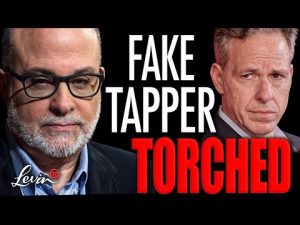Recent events in Washington, D.C. have unveiled a significant stir surrounding the U.S. Secret Service and its acting director, Ronald Roe. In a lively congressional hearing, Congressman Pat Fallon confronted Roe about his behavior during a recent 9/11 memorial service. The congressman alleged that Roe was more interested in positioning himself for a photo opportunity alongside high-profile figures than fulfilling his primary duty of protecting them. As tensions mounted, it became clear that the American public’s desire for accountability in federal agencies is as strong as ever.
During the hearing, Fallon was relentless in his questioning. He accused Roe of interrupting protective operations to get closer to the president and vice president for a photo op. Witnesses suggested that Roe had moved from three rows back to stand directly next to these VIPs, thereby displacing agents who were actually responsible for their security. The atmosphere escalated quickly, with Fallon asserting that Roe’s actions were not only inappropriate but also highlighted a serious lack of humility and accountability—a sentiment echoed by many critics across the political spectrum.
What followed was a dramatic and somewhat chaotic exchange. Roe, feeling backed into a corner, resorted to recounting his service on September 11, 2001. While these memories are undoubtedly significant, they seemed entirely irrelevant to the congressman’s straightforward inquiry. Fallon’s frustration with this deflection was palpable. The congressman noted that the American people are fed up with evasive answers and nonsense when it comes to crucial national security matters. They want leaders who are willing to own up to their mistakes and prioritize the safety of those they are tasked with protecting.
The fallout from the hearing didn’t stop there. Rank-and-file agents within the Secret Service reportedly expressed their dismay over Roe’s emotive defense. Many questioned the credibility of his testimony, especially when it was revealed he was not wearing an earpiece during the memorial service—a potential red flag that suggested he wasn’t fully engaged in his protective duties. Such details have left agents and the public wondering about the agency’s competence and priorities.
Moreover, some have drawn parallels between Roe’s responses and other politicians who similarly dodge pressing concerns with anecdotes that miss the point. Comparing Roe’s reaction to that of Vice President Kamala Harris—who often talks about her childhood in unrelated discussions—some see this pattern as a marker of deeper issues within leadership. When agency heads and federal officials focus on their pasts rather than present accountability, it raises eyebrows and causes skepticism among the citizenry.
As the hearing concluded, it became evident that there are broader implications at play here. This inquiry has put the Secret Service in the spotlight, especially considering past failures to protect their charges effectively. Congressman Fallon’s passionate outburst reflected a growing demand for change and renewed focus on the agency’s core mission. As discussions about accountability and transparency in government grow louder, the American public is keeping a keen eye on the future of the Secret Service and the individuals leading it. Will they step up to the plate, or continue to juggle photo ops over public safety? The answer remains to be seen, but one thing is crystal clear: the American people are not inclined to let this issue slide away quietly.







